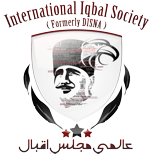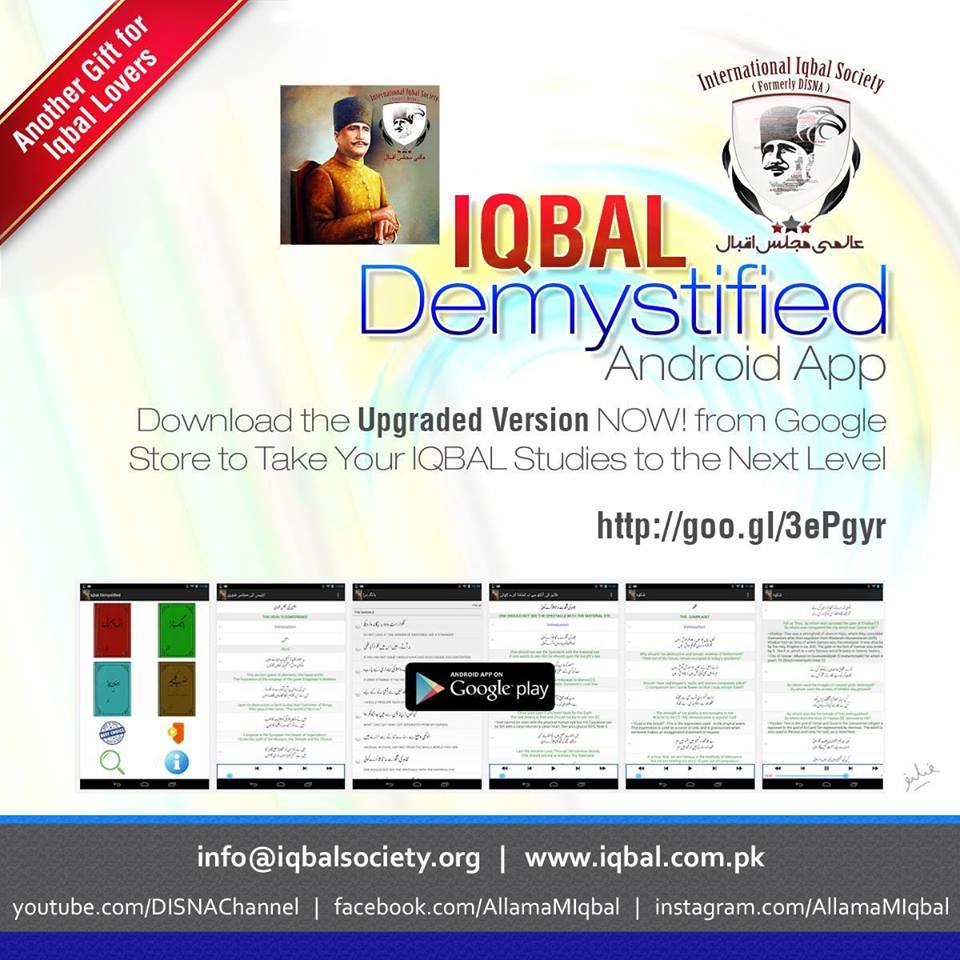Study of Reconstruction - Course - RRTI1
- Parent Category: IIS Education
- Hits: 6683
- Print , Email
If you are willing to start such courses in your institue/organisation, please email us at This email address is being protected from spambots. You need JavaScript enabled to view it.
Introduction:
For the first time in Pakistan, International Iqbal Society in association with Dabistan-e-Iqbal presents a comprehensive course on Allama Muhammad Iqbal's "Reconstruction of Religious Thought in Islam". This is a unique opportunity for all Iqbal enthusiasts to embark on a journey of discovery, exploring the most fascinating dimensions of Iqbal and his message. Our esteemed panel of scholars consists of some of the most capable and renowned names in Iqbaliyat.
Duration:
This certified course consists of 40 topics/lectures which are distributed in 3 modules. Each module will be delivered by a respective expert of that subject.
Since this course is designed keeping in mind both the students and professionals alike, there will be only one class every week (2-3 hours, Every Saturday). Timing will be from 6:30pm - 8:30pm initially.
Venue:
Initially we will be offering this course in Lahore, Pakistan only. For the venue and the map of the location, please scroll down to the bottom of the page.
Registration:
Registration for this course will open from the 3rd of February, 2012 and the last date of registration will be the 1st of March. Pleas note that we only have limited seats so is we'll have these seats filled before the LOR, the registration will be closed.
There is no minimum age limit, minimum education required is Intermediate (Grade 12).
Please note that we have very limited seats and the registration will be done on first come first serve basis, please register today to avail this once in a lifetime opportunity.
Participation Certificates and eligibility:
This course is certified by Dabistan e Iqbal and International Iqbal Society. The participants must attend 80% of the registered lectures to qualify for the participation certificate.
Fee:
- The introductory/subsidized fee for the full course that includes all the 3 modules is Rs. 8000. Participants paying for the full course upfront will receive Rs. 1000 discount.
-
Scholarships are also available for eligible candidates
Course Outline (Subjected to change):
Module 1: Introduction
Topics:
|
Historical background of writing Reconstruction |
|
Preface of Reconstruction |
|
Ch-1: Knowledge and Religious Experience |
|
Ch-2: The Philosophical Test of the Revelations of Religious Experience |
|
Ch-3: The conception of God and the Meaning of Prayer |
|
Ch-4: The Human Ego: His Freedom and Immortality |
|
Ch-5: The Spirit of Muslim Culture |
|
Ch-6: The Principle of Movement in the Structure of Islam |
|
Ch-7: Is Religion Possible? |
Module 2: Interpretation
Topics:
|
The status of Reconstruction in our intellectual tradition |
|||||||||||
|
Issues of Preface and its centrality in Reconstruction |
|||||||||||
|
Translations of Reconstruction |
|||||||||||
|
Difference of knowledge and religious experience (Ch-1), |
|||||||||||
|
sources of knowledge in iqbal’s thought (fawad, qalb, reason etc) (Ch-1), |
|||||||||||
|
Three arguments on existence of God (Ch-2), |
|||||||||||
|
Iqbal’s arguments from Physics and Biology (Ch-2), |
|||||||||||
|
Oneness in Religion and Philosophy (Ch-3), |
|||||||||||
|
Five characteristics of Ultimate ego (Ch-3), |
|||||||||||
|
Iqbal on Attributes of God in religious thought (Ch-3), |
|||||||||||
|
Prayer: Islamic institution of worship (Ch-3) |
|||||||||||
|
Characteristics of Ego (Ch-4), |
|||||||||||
|
Freedom of Ego (Ch-4), |
|||||||||||
|
Iqbal on Rumi’s concept of evolution (Ch-4), |
|||||||||||
|
What is spirit of Muslim Culture? (Ch-5), |
|||||||||||
|
Finality of Prophethood: Iqbal’s interpretation (Ch-5), |
|||||||||||
|
Sources of knowledge in Islam (Ch-5),
|
Module 3: Application
Topics:
|
The status of Reconstruction in modern perspective |
|
Important commentaries of Reconstruction |
|
Holy Quran in Reconstruction |
|
Ahadith in Reconstruction |
|
Religious experience in Reconstruction (Ch-1), |
|
Religious experience in Iqbal’s thought(Ch-1), |
|
Knowledge by presence and acquired knowledge (Ch-1), |
|
Criticism on Ghazali and Kant : An analysis (Ch-1), |
|
Characteristics of religious experience: an analysis in the light of modern research (Ch-1), |
|
Five characteristics of religious experience: William James vs. Muslim Mystics (Ch-1) |
|
The analysis of Iqbal’s scientific arguments in perspective of modern research (Ch-2), |
|
difficulties of Iqbal’s arguments in establishing belief in God (Ch-2) |
|
Arguments on God in Philosophy and Religion: benefits and disadvantages (Ch-3), |
|
Good and evil in Iqbal’s thought (Ch-3), |
|
Iqbal’s Concept of God and Pantheism (Ch-3), |
|
Iqbal’s difference with Ghazali on Ego (Ch-4), |
|
Iqbal’s interpretation of mystic unitive experience (Ch-4), |
|
Iqbal’s criticism on philosophical arguments on life after death (Ch-4), |
|
Difficulties of Iqbal’s Concept of ego: duality of Human Nature and internal Jabr (Ch-4), |
|
Iqbal’s arguments on life after death and analysis of criticism on it (Ch-4), |
|
Prophetic Conscience & Mystic Conscience : Difference and consequences (Ch-5), |
|
Concept of Wahy (Ch-5), |
|
Relevance of Inductive reason with emergence of Islam (Ch-5), |
|
Status of inductive reason in Pluralistic Methodology of knowledge (Ch-5), |
|
Scepticism in Ghazali and Descartes (Ch-5), |
|
Biological foundations of Wahy (Ch-6), |
|
Three causes of not adopting Ijtehad (Ch-6), |
|
Iqbal’s view on Zia Goklap Phenomena (Ch-6), |
|
Potential in Islamic law to face modern challenges (Ch-6), |
|
Ijtehad in Penal Structure of Islam : Permanence in Change or Permanence and Change (Ch-6) |
|
Two foundations of possibility of religion (Ch-7), |
|
Countering Kant on Religion (Ch-7), |
|
Unity of Thought and being and possibility of religion (Ch-7), |
|
Psychological analysis of religious experience (Ch-7), |
|
Difficulties of correlating prophetic experience with social results and achievements (Ch-7), |
|
Nuclear difference of Concept of evolution in Muslim and western thought (Ch-7), |
Venue:








